February 2023: Olive Tree

Volume VII/Issue 11/February 2023


From The Editorial Desk
The Militant Church
This is the reason why St. Matthew draws the picture of a boat being tossed and turned by huge waves and strong winds. But how do we face our emotional and spiritual storms?
STORM
S- solitude. When you are overwhelmed by problems, try to make spaces, do some distancing in order to get an objective view of the situation. Our Lord Jesus Christ went to deserted places in order to pray.
T- text. A scriptural verse can help you gain confidence like " Do not be afraid ', " I can do all things through Christ who strengthens me. "
O- oremus. In Latin. "Let us pray. " How do we pray?
Remember ACTS:
A is adoration
C is contrition
T is Thanksgiving
S is supplication. Pray for your love ones, pray for priests, pray for the Government officials, pray the poor and pray for your self.
R- Rosary / relationship . Rosary is already proven effective. Rosary is not just repeating Hail Marys. Rosary is visualizing your self within the mysteries. Putting yourself in every moment of Christ's life.
Relationship is having true friends who are willing to listen.
M- mature in God's love. The Lord loves me and you unconditionally. The Lord loves me and you when we are still sinners. We are invited as well to love with out measure.
Hence, when we are going through a rough day, just think about the word STORM: Solitude, text from the Bible, Oremus, Rosary and relationship and lastly Mature in God's love.
Amen.
Change Your Circumstances
A person who was overwhelmed and overcome with circumstances complained to a wise man who gave him a carrot, egg and some coffee beans. The wise man placed three pots of water on the stove.
When the water started to boil, he placed the three items into the three pots. He then removed the carrot and showed how it had become mushy and weak. He broke the egg and showed how the soft yolk had become hard. He took the third pot with the coffee beans and poured two cups of coffee for both to sit down and enjoy.
He wisely stated, “Do not let your circumstances change you as it changed the carrot into weakness and the egg into hardness. But be as the coffee beans; change your circumstances.”
Lesson to learn: Don’t let circumstances change you but change your circumstances.
Outside a besieged city, “Now there were four lepers, at the entering in of the gate: and they said one to another: What mean we to stay here till we die?” (II Kings 7:3).
As they were starving, they considered their circumstances, saying, “If we go there, ‘we shall die there: and if we sit still here, we die also....if they save us alive, we shall live; and if they kill us, we shall but die.’ ” So they went there. “Behold, there was no man there” (vss. 4, 5).
The enemy had fled and all were fed. They did not let their circumstances change them, but they changed their circumstances. When life gives you lemons, make lemonade. Everyone who has ever succeeded has overcome opposition and obstacles.
You can overcome what overwhelms you (I John 4:4). The Lord promises to bless overcomers in each of the seven churches (Rev. 2–3). When the Devil reminds you of your past, remind him of his future.
As Yogi Berra said, “It ain’t over till it is over.” God will have the last word and it will be good (Rom. 8:28). Remember, what is over your head is under His feet (Eph. 1:22). The Lord can do for you what you cannot do for yourself. Stop trying and start trusting.
Let go and let God! Keep your faith and hope. Faith is the evidence of things not seen. Hope is the expectation that it will happen. It is not what happens to you but in you that makes the difference.
You may be knocked down, but you are not knocked out. Keep getting up and you can win (Prov. 24:16). Paul Harvey said, “If you fall down seven times and get up eight times, you will succeed.”
Losers never win and winners never lose. Don’t faint,which means to lose heart (Gal. 6:9). When you look at what is stopping you, it will either make you or break you. Greatness is not determined by what it takes to start you, but by what it takes to stop you.
I have never seen a happy quitter. So don’t stop, quit, give up, or give in. When you are overwhelmed and overcome between a rock and a hard place, don’t just sit there till you die. Don’t let circumstances change you. Change your circumstances.

Why Our Prayers Are Not Answered
“You ask and do not receive, because you ask wrongly, to spend it on your passions”—James. 4:3.
It has always been very striking to me when studying the life of Jesus that, however busy He was, He was never too busy to pray. However closely He was beset by problems and difficulties, however great might be the press about Him, He never let the opportunity slip by to teach by example and precept the importance of prayer. Just before He preached the Sermon on the Mount, Jesus spent the whole night in prayer. It was a great responsibility. It was to be His inaugural address, the announcement of His platform. He would not enter upon such an important and responsible position without spending much time in prayer.
You will remember Jesus did the same thing just before the selection of the Twelve. He realized what an important matter that was. And yet those of us who would not lay claim even to the right to unloose the shoes on the feet of our Lord would dare enter upon the most responsible positions in life without stopping to spend one hour—much less a whole night—in prayer. Oh, that men today knew how to pray! Oh, that the Church knew how to talk to God! I fancy, if we did, we should have a much easier time in managing Church affairs. One day a splendid woman came to me in my parish and said, “Father I have prayed for one thing for a number of years and have never gotten the slightest indication of an answer, yet I know this thing I am praying for is according to the will of God. Why is it I have had no encouragement?” I said, “I don’t know.” I began to study the matter. Why has God kept silent? Is it treading on too sacred ground to ask God why He does not do a thing? I do not think it is, if we ask it in the right spirit. He is held up to us in the Scriptures as a Father and I know full well that my dad did not feel angered or out of patience with me when I would come to him and ask the reason for this or that.
Why is it God keeps the answer from us? Something is the matter in much of our prayer today, or we should hear more from it.
If I send a telegram from here to my parish in Atlanta asking them an important question and get no answer, I take it for granted that something has gone wrong or the means of communication have broken down. There is spiritual paralysis. Why, then, is our prayer not more effective?
-
Sin Harbored in the Heart Perhaps in prayer, sin is consciously harbored in our hearts.
David says, “If I regard iniquity in my heart, the LORD will not hear me” (Psalms 66:18). That is to say, if I am holding onto anything that is wrong, my prayer cannot be heard.
When I say that, I do not mean some big sin like lying, murder, stealing or drunkenness. If I am holding onto anything that is contrary to the will of God in my life, I might just as well stop praying and never make another prayer under the sun—never.
Some years ago a man was walking down the streets of New York on a very warm day and was seen to fall. When he was examined at the hospital it was thought that he had a tumor in his brain, because he was quite paralyzed. However, a surgical operation was performed and it was found that a small spicular bone not much larger than a pin had caused the paralysis.
For years it had been teasing the nerve centers and producing chronic congestion of the brain. The bone was removed and in three months the man was as well as if nothing had happened.
As I look upon our Parishes today—as I look on individual lives and compare them with what they might be—I am free to say my candid judgment is that we are in a state of paralysis. The Church of Jesus Christ is paralyzed. There is no doubt about that. It is alive, it is not dead, but it is simply paralyzed. It has lost its strength, its vigor.
It is Samson with his head in the lap of Delilah. It wants to do, it tries to do, it does something; but, oh, it doesn’t begin to touch the hem of the garment of possibility!
Paralyzed! I feel it as I go out to battle with the sins of the world. Look at alcoholism. Instead of its growing weaker, it is growing more powerful and we are as weaklings by the side of this giant.
We may just as well acknowledge the fact that there is something wrong somewhere. If God is “the same yesterday, to day, and for ever” (Heb. 13:8), if the God of Elijah is still in existence,what is the matter?
I verily believe that one of the fundamental reasons for the paralyzed state of the church lies in the fact that she is harboring that which she knows to be contrary to the will of God.
Maybe it is harboring it in its own fellowship. Here is a man who contributes largely to the expenses of a parish, but he is known to the community as unworthy of the fellowship of Jesus Christ.
To get rid of that man would be to lose his influence and his money, so we hold on to his money and to him; and God gives us only what money can buy and withdraws from us the right arm of His power.
-
Lack of Faith Hinders
Then I believe we often do not get an answer to our prayers through our lack of faith. Faith is a thing we talk about freely during our homilies and at catechism class, but where is the man who actually lives by its rule? Where is the catholic today that really lives by faith? I frankly admit that mine does not. Sometimes we try. Sometimes I think we approach it. Oh, for a parish that would live by faith! How it would startle the world!
What is faith? Undertaking a thing for God, the end of which you cannot see at the time you undertake it. Ninety percent of us demand to see the end before we take the first step. At an official meeting in my own experience it was proposed to enter at once upon the contract for a new church which must be built. A businessman said, “I will never agree to it until I see where all the money is coming from.” I replied, “That is splendid business, as the world counts it, but it is very poor religion!” I believe in having religion and business together, but I do not believe in businessmen coming to the church with one standard when God has already given us another. “Whatsoever is not of faith is sin” (Romans 14:23). If we are going to walk by faith, let us shut the mouth of the man who is eternally saying, “I cannot do it until I see where the money is coming from.”
Sometimes when parish board members come to me with long faces because we have dropped behind, I feel like saying, “Folks, the God who gave us the Church and all the other things—cannot you trust Him for two months’ supplies for the needs of the parish?”
Oh, it is so ridiculous. These are the things that hinder us in talking to God. We are so baby-like. God cannot talk baby talk to us. I believe that today He is seeking for the people who will take Him at His word—and then He will speak.
-
Prayer Blocked by Lack of Surrender We fail to get answers to prayer, too, because of the lack of surrender to the will of God.
The one thing we hesitate to do is usually the thing God wants us to do. The average man would rather die than give up his rights or what he claims to be his rights. We should remember that every right carries with it another—the right to surrender a right for somebody else’s sake.
At the Niagara Falls a man who was coming down the river found his boat was in danger of being hurled down the rapids. With mighty strength he pulled his boat to a little island and got hold of a willow limb.
He stepped one foot on the rocks; his boat went over the precipice to destruction. As he looked up he saw a sign, “No trespassing allowed here.” He said, “I don’t propose to go back yonder!” and started across the land. The owner of this little island met him with a huge bulldog, which went for the man and tore him up badly; and then he was taken before the court for trespass. The decision of the court was: The owner had a right to post his land and to defend it and to set the dog on the man But the owner had another right—the right to surrender his right for that man’s life. Because he did not do so, he would be fined so many hundred dollars or be sent to prison for six months. I suggest that man went out of the dog business before another year was over!
There is a great secret underlying this and a great principle. Until a Christian man gets to the place where he is willing to surrender even what he has a right to have, he will never know how to enjoy a perfect talk with God.
Sometimes I am afraid our self denial is a kind of Pharisaism. We say we are willing to work with Christ, to sleep with Him out in the cold, to hunger with Him, to suffer with Him. I believe there are men and women amongst us today by the thousands who would actually die for Christ, should need arise.
I do not believe the day of martyrs is past. I believe that if there were the same opportunity of testing men as in those days, we could write many volumes of books about those who were martyred.
But granted that we would be perfectly willing to die before we would surrender principle, or deny Christ, are we equally willing to live for Him? It takes a great deal more grace to do that.
There is a sort of heroism in blood. Something gets into a man’s nerves when his principle is antagonized that makes him willing to fight to the death for it. But, oh, there is no romance about plain, everyday drudgery. There is nothing the world calls heroic in that. Yet it is the most sublime heroism the angels ever looked upon.
We are at the cross. He is in Gethsemane. Before we can enjoy the power of the cross we must go by the way of the Garden. Jesus did not go to the cross until He had conquered in Gethsemane. “Not my will,” said He, “but thine, be done” (Luke 22:42).
Oh, my brother, until we say that and mean it and live it, we shall never have a perfectly clear sky between us and God!

The State of Vatican II
Recently I had the opportunity to visit Saint Joseph's seminary in Yonkers, New York, just north of New York City. The librarian there kindly gave me a theology text which was going to be discarded since it was published prior to 1958, in other words, before the Second Vatican Council, back when the Church was still Catholic. During my visit I noted that I did not see any seminarians in the building nor around the campus. The entire facility had such an empty vacant feeling to it.
We should not be surprised by this, for Vatican II and its awful spirit and consequences are thankfully dying off. In addition I saw a recent study which pointed out that the average age of nuns within the Vatican II structure is 80 years. Since some of them are under the age of 80, we must conclude that many others are over 80. The conclusion of the study was to point out that the Vatican II religious sisters will become extinct in another decade or so.
This has mixed results for us traditional Catholics. On one hand, these nuns will no longer be able to spread the modern theology of Vatican II among young people. On the other hand, we see in this the death of religious life. It died a long time ago, when, in the aftermath of Vatican II, the Catholic faith was sucked out of it. For sixty years now, the religious life of these nuns has been operating as a dying institution with its momentum simply left over from the past. We can safely say the same thing in regard to religious brothers as well.
It is true that there are a few, a very limited number, of vocations to the Novus Order, but even that is in a major decline. In the past year, 38 dioceses in the United States did not ordain a single priest.
At the same time we find that 21 dioceses are in financial bankruptcy, due to the flood of sex abuse lawsuits.
There is clearly no life left in the Vatican II structure. This is an important lesson for all those who have retained the Catholic Faith.
Vatican II is like a diseased body lying in a casket. We know that all revolutions eventually die out. So it is in this case. For Vatican II attempted to do something which is impossible: it attempted to put the institution of modernism into the very body of the Catholic Church. These two things are 100% opposed to each other. They will never come together into one body, in the same way that the heart and soul of a horse cannot be placed inside the body of a man.
This and That
Plowing Straight
I remember as a youngster
When my father said to me,
Looking backward down the furrow
And then right down at me,
“Always plow as straight a furrow
As it’s possible to do;
Men will judge you by your plowing
When they think of hiring you.
If your furrow row is crooked
And you don’t plow deep and true,
They’ll know you’re not the worker
For the task they want to do.”
What a practical philosophy— I suspect it can’t be beat.
Whether work or life or morals,
Let’s keep those furrows neat.
-
If You Play With Dogs…
While I was visiting a farmhouse deep in the heart of the South, the gracious woman of the house said in the course of conversation, “If you play with dogs, you will surely get licked in the mouth.” It was an unusual statement, but it is certainly true. It points to the certainty of a thing. If you reject God, you will surely go to Hell! If you take fire into your bosom, you will surely get burned. If you play with sin, you will surely reap the wages! Shun sin— Like you would a poisonous snake! Like you would a wild bear! Like you would a black widow spider! “Then when lust hath conceived, it bringeth forth sin: and sin, when it is finished, bringeth forth death.”—Jas. 1:15.
‑
Jesus Never Comes Too Late
“When he had heard therefore that he [Lazarus] was sick, he abode two days still in the same place where he was.”—John 11:6.
Strange scene that must have been! Martha was saying, “If thou hadst been here, my brother had not died.” She believed that Jesus could have saved him from death but could not raise him from the dead!
Remember that in life or in death, in sickness or in strength, in hope or in despair, here or hereafter, Jesus never comes too late. The times are in His hands and He will come. But what will we be doing until He comes?
Not so in haste, my heart; Have faith in God and wait. Although He lingers long, He never comes too late. We’re soonest at the goal That is not gained by speed; Then hold thee still, my heart, For I shall wait His lead.
‑
The Shepherd Psalm
The 23rd Psalm has been a source of comfort to myriads of people in life and death. Consider the following.
The Lord is my shepherd— Perfect Saviour.
I shall not want—Perfect Salvation.
He maketh me to lie down in green pastures—Perfect Rest.
He leadeth me beside the still waters—Perfect Refreshment.
He restoreth my soul—Perfect Restoration.
He leadeth me in the paths of righteousness—Perfect Guidance.
I will fear no evil—Perfect Protection.
Thou art with me—Perfect Company.
Thy rod and Thy staff—Perfect Comfort.
Thou preparest a table—Perfect Provision.
Thou anointest my head— Perfect Consecration.
My cup runneth over—Perfect Joy.
Goodness and mercy shall follow me—Perfect Care.
I will dwell…forever—Perfect Destiny.
‑
Not My Hands but My Heart!
A certain conscientious priest, who could not bear deceit in any form, was constantly irritated by the habitual irregularity of the clock in the church sanctuary. His people were ever commenting on the clock’s unreliability, by implication blaming the “hands” of the timepiece. With the thought of teaching an important lesson, the pastor hung a placard on the wall above the clock reading, “Don’t blame my hands; the trouble lies deeper.”
So with us also when our hands do wrong; or our feet, lips or even our thoughts go astray. There is an inner world in which we live a great portion of our lives—a world of imagination, desire, ambition—a world that we want to keep ever in the dark. But, oh, the pleasure we ofttimes find in entering that world. This inner world may be a truer index of our character than the outer world in which we live openly. We like to deny it, say it is not there; but God sees this inner world more plainly than our neighbors see the outer one.
Yes, the trouble with most of us is that our difficulties lie so deep that only God’s miracle power of grace can deal with them. The beauty of Jesus was that His inner character was more beautiful than His outer one. At the Transfiguration when His face became as the sun and His raiment as white as the light, we are given a glimpse of the inward character of our Saviour without spot or shadow or blemish. God could turn His Son inside out in the presence of men and not be embarrassed, but He could not do that with any other son of His.
“Who shall stand in his holy place? “He that hath clean hands, and a pure heart.”—Ps. 24:3, 4.
There is one hopeful thought: sin indeed goes deep, but Christ goes deeper. Not only is He our Substitute in His perfection, but He is our indwelling Cleanser of the Temple.
The Funny Pharmacy
A joyful mind maketh age flourishing: a sorrowful spirit drieth up the bones. - Proverbs 17:22

Frequently Asked Questions

Can Those In Heaven See Us Here On Earth?
Hebrews 12:1 says, “Therefore, since we are surrounded by so great a cloud of witnesses, let us also lay aside every weight, and sin which clings so closely, and let us run with endurance the race that is set before us,”
Chapter 11 is the “Hall of Faith” chapter where the great heroes and heroines of faith are mentioned. Then this chapter opens by reminding us that these great men and women of faith are looking down upon those who are running the Christian race today; and it admonishes us to “let us also lay aside every weight, and sin which clings so closely, and…run with endurance the race that is set before us.”
Paul talks about this Christian race in Philippians 3:13-14: “Brothers, I do not consider that I have made it my own. But one thing I do: forgetting what lies behind and straining forward to what lies ahead, I press on toward the goal for the prize of the upward call of God in Christ Jesus.”
So Hebrews 12 gives us the picture of a heavenly grandstand with those who have died in faith occupying the grandstand and looking on at the race we Christians run.
We know that there is rejoicing in Heaven over every sinner who puts their trust in Christ. “Just so, I tell you, there will be more joy in heaven over one sinner who repents than over ninety-nine righteous persons who need no repentance.” (Luke 15:7).
If Christians in Heaven can look down and see the salvation of lost loved ones and friends and rejoice over it long after they have gone on, why could they not see other things taking place in our lives?
How much they know about the happenings on earth, we do not know; but that they see and rejoice over the salvation of those on earth and witness our race as Christians is certain.
For answers to more frequently asked questions, click here: https://www.vaticaninexile.com/frequently_asked_questions.php
The Pope Speaks: Pope St. Gregory the Great
The Fruits of Repentance

John recommends that we do great things: "Therefore make worthy fruits of penance." And again, "Let him who has two tunics give one to him who has none, and he who has what to eat does the same. "Is not this to give a clear understanding of what the Truth affirms:" From the days of John the Baptist until now, the Kingdom of Heaven suffers violence, and it is the violent ones who delight "(Mt 11:12). These words which come to us from above, we must meditate with great attention. We must look for how the Kingdom of Heaven can suffer violence. Who could do violence in Heaven? And if the Kingdom of Heaven can suffer violence, it remains to ask why it is since the days of John the Baptist that he supports this violence, and why it was not so before. When the Law says, "If anyone does this or that, he will die of death," all those who read it clearly understand that it has struck sinners hard, without bringing them back to life. by penance. But when John the Baptist, announcing the grace of the Redeemer, preaches penance for the sinner, who died by his fault, to live by the effect of his conversion, it is true that since the days of John the Baptist, the Kingdom of heavens suffers violence.
What is this kingdom of heaven but the dwelling of the righteous? For it is to the just ones that the rewards of the heavenly homeland are due, so that the humble, the chaste, the meek, the merciful attain the joys from above. But when sinners who were swollen with pride, sullied by the sins of the flesh, burned by anger or filled with cruelty, return to penance after committing these faults and obtain eternal life, they enter somehow into a foreign country. Thus, since the days of John the Baptist, the Kingdom of Heaven suffers violence, and it is the violent ones that delight him, since by enjoining penitence to sinners, John has taught them to do violence in the Kingdom of Heaven.
Let us, dear brothers, rethink the evil that we have done, and consume ourselves [repentance] by weeping incessantly. This inheritance of the righteous whom we have not been able to obtain by our life, let us be overcome by penitence. The almighty God wants to suffer from us such violence, because the Kingdom of Heaven is not due to us by virtue of our merits, he wants us to ravage him with our tears. May our bad deeds, however serious and numerous, in no way affect the certainty of our hope. It is a great confidence to be forgiven that gives us the good thief, worthy of veneration (cf Lk 23, 39-43). Not that being a thief has made him so; but by cruelty, he became by his confession worthy of veneration. Think, then, consider how incomprehensible are the entrails of mercy of Almighty God. This thief, who had blood on his hands, was removed from his cup-throat and hanged on the gallows of the cross. There he confessed, there he was healed, there he deserved to hear: "Today you will be with me in paradise" (Lk 23:43). Who can say or measure such great goodness of God? From the very punishment of crime, the thief came to the rewards of virtue. If the almighty God allowed his chosen ones to fall into certain faults, it is to give the hope of forgiveness to others who lie in sin, provided that they return to him with all their heart, and to open to them the way of love through the tears of penance.
Let us then apply ourselves to tears, erase by tears and worthy fruits of penance the faults we have committed.


St. Francis de Sales' Introduction to the Devout Life

CHAPTER XII
Fourth Meditation - On Sin.
Preparation.
1. Place yourself in the Presence of God.
2. Ask Him to inspire your heart.
Considerations.
1. Consider how long it is since you first began to commit sin, and how since that first beginning sin has multiplied in your heart; how every day has added to the number of your sins against God, against yourself and against your neighbour, by deed, word, thought and desire.
2. Consider your evil tendencies, and how far you have followed them. These two points will show you that your sins are more in number than the hairs of your head, or the sand on the seashore.
3. Apart from sin, consider your ingratitude towards God, which is in itself a sin enfolding all the others, and adding to their enormity: consider the gifts which God has given you, and which you have turned against the Giver; especially the inspirations you have neglected, and the promptings to good which you have frustrated. Review the many Sacraments you have received, and see where are their fruits. Where are the precious jewels wherewith your Heavenly Bridegroom decked you? with what preparation have you received them? Reflect upon the ingratitude with which, while God sought to save you, you have fled from Him and rushed upon destruction.
Affections and Resolutions.
1. Humble yourself in your wretchedness. O my God, how dare I come before Thine Eyes? I am but a corrupt being, a very sink of ingratitude and wickedness. Can it be that I have been so disloyal, that not one sense, not one faculty but has been sullied and stained;--not one day has passed but I have sinned before Thee? Was this a fitting return for all my Creator's gifts, for my Redeemer's Blood?
2. Ask pardon;--throw yourself at the Lord's Feet as the prodigal son, as the Magdalene, as the woman convicted of adultery. Have mercy, Lord, on me a sinner! O Living Fountain of Mercy, have pity on me, unworthy as I am.
3. Resolve to do better. Lord, with the help of Thy Grace I will never again give myself up to sin. I have loved it too well;--henceforth I would abhor it and cleave to Thee. Father of Mercy, I would live and die to Thee.
4. In order to put away past sin, accuse yourself bravely of it, let there not be one sinful act which you do not bring to light.
5. Resolve to make every effort to tear up the roots of sin from your heart, especially this and that individual sin which troubles you most.
6. In order to do this, resolve steadfastly to follow the advice given you, and never think that you have done enough to atone for your past sin.
Conclusion.
1. Thank God for having waited till now for you, and for rousing these good intentions in your heart.
2. Offer Him all your heart to carry them to good effect.
3. Pray that He would strengthen you.
Saints from East and West

February 12 - The Seven Holy Founders of the Servite Order
It was between the years 1225 and 1227 that seven young Florentines joined the Confraternity of the Blessed Virgin-popularly known as the "Laudesi" or "Praisers." It was at a period when the prosperous city of Florence was being rent by political factions and distracted by the heresy of the Cathari: it was also a time of general relaxation of morals even where devotional practices were retained. These young men, members of the most prominent families of the city, had from their childhood been occupied more with spiritual than with temporal affairs and had taken no part in local feuds. Whether they were all friends before they joined the Laudesi is not clear, but in that confraternity they became closely allied, and all seven grew daily more detached from the world and more devoted to the service of the Blessed Virgin. The eldest of them was Buonfiglio Monaldo, who became their leader, and the others were Alexis Falconieri, Benedict dell'Antella, Bartholomew Amidei, Ricovero Uguccione, Gerardino Sostegni, and John Buonagiunta. They had as their spiritual director James of Poggibonsi, who was chaplain of the Laudesi, a man of great holiness and spiritual insight. All of them came to realize the call to a life of renunciation, and they determined to have recourse to our Lady in their perplexity.
On the feast of the Assumption, as they were absorbed in prayer, they saw her in a vision, and were inspired by her to withdraw from the world into a solitary place and to live for God alone. There were difficulties, because, though three of them were celibates, four had been married and had ties, although two had become widowers. It was necessary to make suitable provision for their dependents; but that was arranged, and with the approval of the bishop they withdrew from the world and betook themselves to a house called La Carmarzia, outside the gates of Florence, twenty-three days after they had received their call. Their aim was to lead a life of penance and prayer, but before long they found themselves so much disturbed by constant visitors from Florence that they decided to withdraw to the wild and deserted slopes of Monte Senario, where they built a simple church and hermitage and lived a life of almost incredible austerity.
In spite of difficulties, visitors sometimes found their way to the hermits and many wished to join them, but they refused to accept recruits. So they continued to live for several years, until they were visited by their bishop, Ardingo, and Cardinal Castiglione, who had heard much about their sanctity. He was greatly edified, but he made one adverse criticism. "Your mode of life," he said, "is too much like that of the wild creatures of the woods, so far as the care of the body is concerned. You treat yourselves in a manner bordering on barbarity: and you seem more desirous of dying to time than of living for eternity. Take heed: the enemy of souls often hides himself under the appearance of an angel of light... Hearken to the counsels of your superiors." The seven were deeply impressed by these words and hastened to ask their bishop for a rule of life. He replied that the matter was one that called for prayer, and he entreated them not to continue to refuse admittance to those who sought to join them. Again the solitaries gave themselves up to prayer for light, and again they had a vision of our Lady, who bore in her hand a black habit while an angel held a scroll inscribed with the title of Servants of Mary. She addressed them and said she had chosen them to be her servants, that she wished them to wear the black habit, and to follow the Rule of St Augustine. From that date, April 13, 1240, they were known as the Servants of Mary, or Servites. In accepting this rule, the Seven Founders found themselves called upon to adopt a different kind of life - much to the satisfaction of their old friend the Bishop of Florence. James of Poggibonsi, who had followed them, resolved to join them, and they were clothed by the bishop himself, Buonfiglio being elected their superior. According to custom they selected names by which they should thenceforth be known, and became Brothers Bonfilius, Alexis, Amadeus, Hugh, Sostenes, Manettus and Buonagiunta. By the wish of the bishop, all except St Alexis, who in his humility begged to be excused, prepared to receive holy orders, and in due time they were fully professed and ordained priests. The new order, which took a form more like that of the mendicant friars than that of the monastic orders, increased amazingly, and it soon became necessary to form fresh houses.
Siena, Pistoia, and Arezzo were the first places chosen, and afterwards the houses at Carfaggio, the convent and church of the Santissima Annunziata in Florence, and the convent at Lucca were established. Meanwhile, although the Servites had the approval of their immediate superiors, they had not been recognized by the Holy See. Again and again efforts were made to obtain recognition for them, but difficulties were raised by those who desired to see the new order abolished or absorbed in another. The Council of the Lateran had declared that no new orders should be founded, and later on the Council of Lyons had added further limitations, and therefore each time the petition of the Servites came before the pope it was set aside or ignored. It was only in 1259 that the order was practically recognized by Alexander IV, and not till 1304 - over sixty years after its foundation - that it received the explicit and formal approbation of Bd Benedict XI. St Bonfilius had remained as prior general until 1256, when he begged to be relieved owing to old age. He died a beautiful death in the midst of a conference of his brethren on new year's night, 1261. St Buonagiunta, the youngest of the seven, was the second prior general, but not long after his election he breathed his last in chapel while the gospel of the Passion was being read. St Amadeus ruled over the important convent of Carfaggio, but returned to Monte Senario to end his days. St Manettus became fourth prior general and sent missionaries to Asia, but he retired to make way for St Philip Benizi, upon whose breast he died. St Hugh and St Sostenes went abroad - Sostenes to Paris and Hugh to found convents in Gernlany. They were recalled in 1276, and, being attacked by illness, they passed away side by side the same night. St Alexis, the humble lay-brother, outlived them all, and he was the only one who survived to see the order fully and finally recognized. He is reported to have died at the age of one hundred and ten.

Advice You Can Bank On
A Catholic Perspective On Finances
February 2023 – Ash Wednesday and the Beginning of Lent
On February 2nd we were granted another six weeks of winter, at least according to my children, and Punxsutawney Phil. I don’t know if I ever fully believed in the groundhogs’ prognostications, although I have always loved the tradition and the movie. It seems more appropriate than ever, with six more weeks of winter, to prepare ourselves for Ash Wednesday, the beginning of the season of Lent. For me, it gives greater meaning to the sacrifices undergone of our Lord and His resurrection.
We learned last year from Pope Michael that we are to fast all weekdays of Lent, where most (adults aged 21-59) are allowed only one full meal per day. During a fast, two other meatless meals may be taken but together should not equal another full meal. Additionally, fasting and abstinence occur on Friday’s during Lent, where no meat and one full meal is allowed. For a full view of fast and abstinence laws click here.
And when you fast, be not as the hypocrites, sad. For they disfigure their faces, that they may appear unto men to fast. Amen I say to you, they have received their reward. But thou, when thou fastest anoint thy head, and wash thy face; That thou appear not to men to fast, but to thy Father who is in secret: and thy Father who seeth in secret, will repay thee. (Matthew 6:16-18)
Prior to and including last year, our family would each select something of our own choosing to give up during Lent. This could include sugar, or sugary things, video games, dining out, or any other ‘vice’ we cared to abstain from. This is how most take on sacrifices during Lent, however, the fasting and abstinence are challenging on their own and are required, in religious solemnity, of Catholics during Lent.
Joel 2:12-13 says, Now therefore saith the Lord: Be converted to me with all your heart, in fasting, and in weeping, and in mourning. And rend your hearts, and not your garments, and turn to the Lord your God: for he is gracious and merciful, patient and rich in mercy, and ready to repent of the evil.
Lent can also be a time for financial reflection and making changes in our spending habits. Here are a few ways to use Lent as an opportunity to spend less money, most of which we’ve covered in previous articles:
-
Simplify your life: Use Lent as an opportunity to declutter and simplify your life. Sell unused items or donate them to those in need. This not only helps you save money, but also frees you from the burden of clutter and excess.
Take heed that you do not your justice before men, to be seen by them: otherwise you shall not have a reward of your Father who is in heaven. Therefore when thou dost an almsdeed, sound not a trumpet before thee, as the hypocrites do in the synagogues and in the streets, that they may be honoured by men. Amen I say to you, they have received their reward. But when thou dost alms, let not thy left hand know what thy right hand doth. That thy alms may be in secret, and thy Father who seeth in secret will repay thee. And when ye pray, you shall not be as the hypocrites, that love to stand and pray in the synagogues and corners of the streets, that they may be seen by men: Amen I say to you, they have received their reward. But thou when thou shalt pray, enter into thy chamber, and having shut the door, pray to thy Father in secret: and thy Father who seeth in secret will repay thee. And when you are praying, speak not much, as the heathens. For they think that in their much speaking they may be heard. Be not you therefore like to them, for your Father knoweth what is needful for you, before you ask him. (Matthew 6:1-8)
-
Plan and stick to a budget: Plan a budget and stick to it throughout Lent. This can help you better manage your finances and ensure that you are spending your money in a responsible and meaningful way.
-
Be mindful of your spending: Make an effort to be mindful of your spending habits and be intentional about each purchase you make. Ask yourself if each purchase aligns with your values and financial goals.
Lent can be a time of spiritual growth and reflection, but it can also be a time to make positive changes in our financial habits. By using Lent as an opportunity to spend less money, we can not only save money, but also grow in our faith and better align our spending with our values and beliefs.

 Family Matters
Family Matters
Bring The Fathers Home
That our sons may be as plants grown up in their youth; that our daughters maybe as cornerstones, polished after the similitude of a palace. Psalm 144:12
Our beloved father David was a prophet, one who moved in the prophetic realm by the inspiration of the Holy Ghost. As prophets often do, he saw deeply into things and bore many burdens that did not even occur to others. In Psalm 144 we find an expression of one of those deep burdens that God had pressed upon his heart. We find in this psalm some insights into the needs of the American family, as well as the rest of the fast-developing world.
Allow me to guide your thoughts a bit as we read a portion of this psalm. The context of this psalm is war. David is speaking about the Lord's blessings in the midst of war. David is speaking about the Lord's blessings in the midst of the war. Amid his reflections and praise, a prayer arises in his heart. This prayer, coming from the deep longings of his heart, is for the end of wars, a peaceful society, and the fruit that comes from that peace. Let's read the psalm with these longings in mind.
7 Send thine hand from above; rid me, and deliver me out of great waters, from the hand of strange children;
8 Whose mouth speaketh vanity, and their right hand is a right hand of falsehood.
9 I will sing a new song unto thee, O God: upon a psaltery and an instrument of ten strings will I sing praises unto thee.
10 It is he that giveth salvation unto kings: who delivereth David his servant from the hurtful sword.
11 Rid me, and deliver me from the hand of strange children, whose mouth speaketh vanity, and their right hand is a right hand of falsehood:
12 That our sons may be as plants grown up in their youth; that our daughters may be as corner stones, polished after the similitude of a palace:
13 That our garners may be full, affording all manner of store: that our sheep may bring forth thousands and ten thousands in our streets:
14 That our oxen may be strong to labour; that there be no breaking in, nor going out; that there be no complaining in our streets.
15 Happy is that people, that is in such a case: yea, happy is that people, whose God is the Lord.(Psalm 144:7-15)
A Prayer Of David
In the first part of this psalm, David is reflecting, praising, and praying about the subject of war. He prays for God's help, and that God will deliver him from his enemies. We see here a righteous king's burden to be free from the influence of ungodly nations. In the last part of the psalm, (11-15), his focus turns away from war. He says again: “Rid me, and deliver me, from the hand of strange children, whose mouth speaketh vanity, and their right hand is a right hand of falsehood.”
Now, we all know that David was a man of war. In all the days of David, there was war in Israel. There was fighting in Israel. This means that the men of Israel had to rise up any times and go forth to battle. When Israel went to war, they could be gone from home for six months at a time. They lived out in the fields. They traveled long distances, and they were away from their families, their cities, their farms, and whatever their work was. They left all of that when they went forth to battle.
Now that we know a little of the cost involved when Israel went to war, we can see why David's longing prayer was for a peaceful society. David is crying for deliverance from war, to “bring the men home,” Why? Well, there are seven things in this psalm that David is crying for, and all of them happen when the men come home. These seven aspects of a peaceful society all are prefaced by the word “that.” David's prayer was simply “Lord deliver us from war and bring the men home so that:
-
Our sons will be nurtured into mature men.
-
Our daughters will be polished and molded into lovely ladies.
-
Our fields will produce abundantly by the work of our hands.
-
Our sheep will have shepherds and bring forth ten thousands more.
-
Our oxen can increase strength and labor more because of our care.
-
Our land can have all the blessings of peace upon it.
-
Our people will be full of courage, and all murmuring will be gone.
When there was wartime in Israel, the men left their homes, their children, and their wives. They left their farms, their businesses, and their cities, and they went out to war. What happened to the wives, the children, the farms, the cattle, and all those things while the men were out to war? Well, what happens to our families, when the men are gone to much? We all know the answer to this question. We know the answer by personal experience. When the family is neglected, things do not go so well. We kind of put them on the back burner, and they suffer from the men's absence. Here in America, we do this one day at a time. Often, we say, “I will do better for the family tomorrow.” But that tomorrow never comes. There is always another voice calling us to something else.
Can you grasp the depth of wisdom and vision that David had in this inspired prayer for Israel? Here was godly David with a vision of what God had put in his heart through constant meditation in the Word. He knew what Israel was supposed to be. He knew what the children were suppose to be like. He knew what kind of blessing God wanted to put on the nation of Israel if they followed the precepts I have already described. But, here was Israel going out to battle again.
David knew what would happen to the children while fathers were away. We also know what happens to our children when we are away to much. David knew that it takes more than men going to war to make Israel a strong nation. There were foundations of righteousness that needed to be laid in the next generation, or the nation would not be what Jehovah intended it to be. With all this knowledge, David cried, “O Lord, rid me and deliver me fro the hand of strange children.” He prayed “Lord deliver Israel from war,” so that the men of God, the men of war, could go back home and guide their families, and take care of their farms.
Next month: HOW THE PRAYER WAS ANSWERED

Lamp and Light Commentary

"Thy word is a lamp to my feet, and a light to my paths." (Psalms 119:105)
Genesis 3: Two Men Who Listened To Satan
In Chapter 3 and 4 of Genesis, we read of two men who listened to the Devil-Adam and Cain. We can learn some lessons from how each of them fell a prey to Satan's wiles.
When God sent Adam into Eden, He did not send an angel with him to check up on him. Why? Because it is only when we are not being watched, that God can test our heart's attitude. He tests us when no-else is around. Adam and Eve were by themselves and could sin without being observed by any created being.
There were thousands of trees with beautiful fruit in Eden. The tree of life was there too, that would have brought them eternal life. But Adam and Eve did not choose any of these. They went for “knowledge”. They rejected life and chose knowledge -exactly like man does today.
If you had a choice between Bible knowledge and life which would you choose?
I'm sure you will all give the right answer: “Life”. But test yourself: Do you study the Bible to get knowledge or to obey God? If you study the bible to get knowledge, you are going to the tree of knowledge too. And the knowledge of good and evil will only bring death. God wants us to know good and evil through a living connection with Him, and not by study of scripture alone. If we have the knowledge of good and evil without a living connection with God, we will go astray. That was how Adam died. He got the knowledge of good and evil without a living connection with God. Our knowledge of good and evil must through the Holy Spirit telling us what is right and wrong, moment by moment, and the guidance of the Church. Any other way of knowing good and evil will only bring death.
The devil told Eve that she could be like God in 3:5. Jesus came with a message that sounded very similar. But it was totally different. Whereas Satan told Eve that she could be like God in knowledge, authority and power, Jesus tells us that we can be like God in humility, purity, and love. Which of theses two messages do most people desire? Alas, even mot believers hanker after the former!! But is thus that we can distinguish between the voice of the devil and the voice of Jesus. Temptation is very subtle. The devil is a deceiver. His counterfeits look just like the genuine thing on the surface.
When the devil was tempting Eve he was also insinuating that God didn't really love her. If God loved her, Satan implied, God would have allowed her to eat from this beautiful tree. That's why Satan tries to get into our hearts as well, by making us doubt God's love.
Jesus told Peter, “behold Satan hath desired to have you, that he may sift you as wheat:” (Luke 22:31). God gave Satan that permission, just like God had given Satan permission to sift Adam and Eve in Eden. The Lord told Peter, “But I have prayed for thee, that thy faith fail not:” (Luke 22:32) Jesus did not pray that Peter would not fall, but that even if he fell, he woul still believe that God loved him. That is faith.
In the hour of trial and temptation, even if we fall, if we still have faith in the love of God, we have triumphed. Even if your prayer is not answered or something you wanted was not given you. Even if you have to go through some deep trial like Job's, where your children die and your property is lost, don't ever doubt the love of God. That is true faith.
What does it mean to live by faith?
It means to constantly assert, no matter what happens, that God loves you. It was such a faith in his father's love that the Prodigal son back home. He knew that even though he had done a lot of wrong things and messed up his life, his father still loved him. So he went back to his father.
The tree of knowledge of good and evil looked so attractive! It was God Who had made it so attractive because only when it was attractive could Adam and Eve be tested as to whether they would choose God Himself above His beautiful creation. In every temptation, what we essentially face is this: Are we going to choose the Creator or His creation? The temptation could be a pretty woman or gold or some other crated thing. Even when seeking the honor or approval of men, the alternate choice is the approval of God. Which do you want? We sin when we choose the created thing above the Creator. We overcome when we choose the Creator above all His creation. It is as simple as that. Yet most people in the world, including believers, fail this test daily.
We either worship God's creation-a beautiful face or gold or some man's approval- or we consider all of this as garbage compared to God Himself. To the overcomer, the beauty of Jesus and His approval are far more valuable than anything He created. If you were to make just this one choice in every decision in life, you will be a man of God. You will be a woman of God. You know God and His Word in a personal way. Better than any man can teach you. Make that choice in every temptation and say, “Lord, I choose You above all created things.” That is the secret.
So what was Adam's sin?
Was it just that he ate of the fruit of the tree that was forbidden? No. It was more than that. In Genesis 3:17, God told him, “thou hast hearkened to the voice of thy wife”. Is it a sin to listen to the voice of one's wife? Yes, if it leads to disobeying God. God had made Adam the head of his home. But he did not exercise his authority as the head. He saw his wife talking to the devil and he just stood there listening to the conversation and made no effort to stop her. He should have put his foot down and said, “Come away, Eve. Don't listen to him.” There are many husbands like Adam today. They are not the head in their homes. Adam sinned when he did not assert his headship.
God is a good God. He cursed the serpent and the ground, but He did not curse Adam. There we see the tremendous love of God. God killed an animal to cover Adam and Eve. That was the first death on earth. An innocent animal was killed as a sacrifice for Adam's sin and that animal's skin was used to make a garments to cover the nakedness of Adam and Eve. (3:21). That was a picture of what God would one day do on Calvary's cross, allowing His Son to die so that His righteousness may clothe us.
Before Man sinned there was no flaming sword in front of the tree of life. Adam could have gone to it and eaten of it and received eternal life. But God put a flaming sword in front of that tree after man sinned. Today, if you want to partake of that tree, you have to let the sword fall upon your flesh. We don't have to be punished for our sins now, because that sword fell upon Jesus on Calvary. But that sword must fall on our flesh today. As Paul said, “I am crucified with Christ...And I live.” (Galatians 2:20) When we are united with Jesus on the cross, that sword falls on our flesh and we can partake of eternal life. There is know other way to life. This sword guards this tree even today.
Notice some of the words in Genesis 3:16-19, that God spoke to Adam as the punishment for his sin. Words like curse, sorrow, thorns, sweat, dust, death. All of these words are found in the suffering and death of Jesus on the cross. Jesus took all of this upon Himself, so that we can be totally free from the punishment that was put up on Adam in Eden.
We see that as soon as Adam's fellowship with God was broken, his fellowship with his wife was broken too. The proof of this is seen in the fact that he begins to accuse her. Whenever you begin to accuse others, it proves that your fellowship with God is broken. When you are in fellowship with God you don't accuse others. You judge yourself. It is Satan who is the Accuser of the brethren.


Books to feed your faith!
Instructions For Preachers: Getting Your Message From the Pulpit to the Pew
$9.95
Saint Alphonsus Marie de Ligouri presents the proper method of preaching, that will move hearts to repentance and encourage people to live a virtuous way of life. The first chapter is devoted to this method of preaching, which is opposed to the showy method of many preachers of his day and even ours. Many seek to gain the praise of their listeners, rather than to bring them to repentance and educate them in the way of salvation. Saint Alphonsus, following the example of Saints Francis de Sales and Vincent de Paul sought to teach priests how to make saints and save souls rather than impress audiences. The second chapter refutes a critic. Saint Alphonsus begins by explaining the criticism: “My critic, you say, maintains that, though sacred orators should preach in a clear and orderly manner, they should never condescend to speak in a popular style; because, according to him, such a style is unworthy of the dignity of the pulpit and degrading to the word of God.” He then proceeds to defend his position and give further useful instructions to preachers. The third chapter is the refutation of a book On Preaching by the Author of the Philosophical Dictionary, whose name is unknown. Saint Alphonsus describes this book as follows: “Moreover, on seeing the title of the work, On Preaching, one would have thought that it treated of the utility and even of the necessity there is in this world of preaching to the people in order to enlighten them, because in consequence of sin and the corruption of their nature they are enveloped in darkness, and naturally inclined, not to what is good and virtuous, as the author wishes, but to evil and to vices. Now this is not the case: the end of the work is to discredit preaching, by representing it as entirely useless for the reformation of morals.” He then proceeds to outline the author's case and then present his case. Contained here are more useful recommendations to preachers. Finally, we close with a chapter on the usefulness of missions. This has been excerpted from The Complete Works of Saint Alphonsus, which was compiled and translated by Father Eugene Grimm. (1835-1891) All is excerpted from a much larger work on Preaching, and serves as an excellent guide for anyone who enters the pulpit.

Commentary on the Book of Psalms
By Saint Robert Bellarmine
$24.95
The print of this edition is 12 point, larger than an earlier edition in print. In these days the Psalms are little used in the private devotions of lay Catholics; and forms of prayer, which have no authoritative sanction, and which are often little recommendable, either for sentiment or expression, are used, instead of those which have been dictated by the Holy Ghost. The reason of this notable change in the practice of the faithful must be that they do not understand the Psalms. This work was prepared for the use of the laity, but clergy and religious will find it very useful in understanding the psalms they pray in the Divine Office.
Saint Alphonsus Ligouri -Charity is patient, is kind: charity envieth not, dealeth not perversely; is not puffed up; Is not ambitious, seeketh not her own, is not provoked to anger, thinketh no evil; Rejoiceth not in iniquity, but rejoiceth with the truth; Beareth all things, believeth all things, hopeth all things, endureth all things. (I Corinthians 13:4-7) Saint Paul wrote wonderfully about charity in the 13th chapter of First Corinthians. Saint Alphonsus takes these words and gives a simple view of the Catholic way of life and an excellent introduction into the spiritual life. This is excerpted from his work, The Holy Eucharist, which has been excerpted from The Complete Works of Saint Alphonsus, which was compiled and translated by Father Eugene Grimm. (1835-1891)
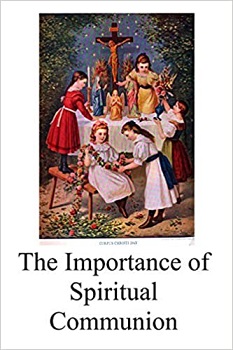
The Importance of Spiritual Communion
Kindle $2.99 / Paperback $5.99
If we cannot receive Holy Communion actually, then let us do so spiritually. These prayers and instructions have been gathered from the Saints and other venerated spiritual writers. Spiritual Communion has been a part of the spiritual life for decades. Growing up I was instructed to make a Spiritual Communion, when I could not go to Communion such as when I assisted at a second Mass. The same is true if one finds oneself at Mass, but not fasting. There are times coming, when it will be difficult, if not impossible to assist at the Holy Sacrifice of the Mass. We should be prepared for such times.
For More Good Traditional Catholic Books:

raditional British Shrove Tuesday Pancakes

Ingredients
3/4 cup plus 2 tbsp (100 g) flour
1/8 tsp salt
1 egg, beaten
8 oz milk
2 tbsp limoncello or your favorite liqueur, or water
butter for pan
lemon wedges and sugar
Directions
Sift the flour and salt into a large bowl; make a well in the middle and add the beaten egg.
Stir in half the milk, working in the flour gradually until it begins to form a batter, then beat well and add the rest of the milk and liqueur or water.
Pour batter into a jug and let stand for about 15 minutes before making any pancakes. When batter has rested, heat a nonstick pan over medium high heat, add a little bit of butter to the center of the pan, stir the batter then pour in a small amount into the pan then swirl it so that it spreads thinly.
Cook for about one minute, then turn and cook the other side for about 30 seconds.
Place on a plate, drizzle with juice from a fresh lemon, sprinkle with sugar then roll or fold to eat immediately, or else keep the pancakes on a plate over simmering water to keep warm, then add the lemon juice and sugar. Continue adding a tiny bit of butter to the pan and cook the remaining batter.
Mother Harper's Prize Winning Beef Stew
The original favourite!
Prep: 20 minutes
Cook: 2 hours
Ready In: 2 hours 20 minutes
Ingredients
2 pounds cubed beef stew meat
3 tablespoons vegetable oil
4 cubes beef bouillon, crumbled
4 cups water
1 teaspoon dried rosemary
1 teaspoon dried parsley
1/2 teaspoon ground black pepper
3 large potatoes, peeled and cubed
4 carrots, cut into 1 inch pieces
4 stalks celery, cut into 1 inch pieces
1 large onion, chopped
2 teaspoons cornstarch
2 teaspoons cold water
Directions
1. In a large pot or dutch oven, cook beef in oil over medium heat until brown. Dissolve bouillon in water and pour into pot. Stir in rosemary, parsley and pepper. Bring to a boil, then reduce heat, cover and simmer 1 hour.
2. Stir potatoes, carrots, celery, and onion into the pot. Dissolve cornstarch in 2 teaspoons cold water and stir into stew. Cover and simmer 1 hour more.
Video sermons and instructions: Timeless timely truths for living the Faith
Fast Laws of the Catholic Church
Ash Wednesday 2013
Second Sunday in Lent 2014
Ep3 S1 How To Purify Our Minds
Vatican In Exile Podcasts
Family Theater
Family Theater was a program created to promote family unity and each week saw a drama illustrating the importance of family life and prayer. The main reason for the success of this series was undoubtedly due to the numerous Hollywood stars that participated.
Cast: Bing Crosby, Gary Cooper, James Stewart, Gregory Peck, Shirley Temple Director: Fred MacKaye, Dave Young, Joseph Mansfield, Richard Sanville, Jaime del Valle, Mel Williamson, Robert O’Sullivan, John Kelley Producer: Father Patrick Peyton, Bob Longenecker Host: Father Patrick Peyton Writer: True Boardman , Father Patrick Peyton Announcer:Tony LaFrano
Ranger Bill
Ranger Bill was a Christian radio adventure serial, and aimed at the younger generation. This turned out to be one of the most successful radio broadcasts, and with an amazing longevity of over twelve years. The very first fifteen minute episode was aired on October 2, 1950, but this later changed to a half hour episode, beginning May 14, 1954 and running right through until 1962.
Catechism Corner
Catechizing with a fresh perspective. Using the Holy Scriptures and the Catechism of the Council of Trent as foundational bases.
Lamp and Light Bible Study
Lamp and Light Bible Study is not a ‘theological’ study but a ‘life application’ study.
Our in house Priest will show that every single book of the Bible is interesting and has a message for us today. It deals with key aspects of the Christian life and speaks more to the heart than to the head.
Sunday Sermon
The Ave Maria Hour
The Ave Maria Hour first aired on April 26, 1935, on radio station WOR. It was presented by the Franciscan Friars of the Atonement to help the humanitarian work of St. Christopher’s Inn, and during that first show, Servant of God Father Paul of Graymoor talked about the charity involved in caring for the men of the Inn. In 1937, it was estimated that nearly 1 million listeners were tuning in each week, which resulted in large pilgrimages coming to Graymoor.
The popular Ave Maria Hour continued until 1969, encouraging and entertaining listeners. It was heard on more than 350 stations as well as on the Armed Forces Radio Service. Recorded in a studio in New York City and on the grounds of Graymoor, these dramatizations of the lives of the saints, stories from the Gospel, and inspiring accounts of faith received many awards for religious radio programs sponsored by the American Exhibition of Educational Radio and Television programs of Ohio State University. It received the Golden Bell Award in 1959, presented by Ed Sullivan on live television.
The Bible In Living Sound
THE BIBLE IN LIVING SOUND, the original dramatized audio Bible stories . . . really gets kids excited about the Bible! These 450 spiritually enthralling stories, re-enacted with music and lively sound effects, leave impressions of lasting beauty and wonder, putting the listener in the Red Sea at the crossing, beside David as he confronts Goliath, with Mary and Joseph in the stable, and there at the foot of the Cross. These stunning dramatizations captivate listeners of all ages as they are enriched by visualizing the values taught in God's Word. Listeners want to hear these audio Bible stories again and again.

Truths From Genesis
Genesis 1:4-5
And God saw the light that it was good; and he divided the light from the darkness. And he called the light Day, and the darkness Night; and there was evening and morning one day.
God described the light as “good.” He tells us a number of times that what He made was “good.” Look at verses 10, 12, 17, 21, 25, and 31. What does God mean by “good”?
In Psalm 25:8, we read Good and upright is the Lord. In Psalm 34:8, we also read Oh, taste and see that the Lord is good.
God describes Himself as “good.” Therefore, if we want to understand what God means by “good,” we need to understand what God is like. In Luke we read how Jesus answered when a ruler asked Him, “And a certain ruler asked him, saying: Good master, what shall I do to inherit everlasting life? And Jesus said to him: Why dost thou call me good? None is good but God alone” (Luke 18:18-19).
Jesus was telling the man asking the question that He (Jesus) is God, as only God is good. God is infinitely good, and the source of all goodness. There are numerous passages that teach us about the goodness of God.
And when he passed before him, he said: O the Lord, the Lord God, merciful and gracious, patient and of much compassion, and true (Exodus 34:6)
Look again at what Jesus said: No one is good except God alone. Only God is good.
What Does 'Good' Mean?
There are many passages in the Bible that help us understand what God is like, and thus what “good” means.
In Matthew 6:28-31 we read: And why are you anxious about clothing? Consider the lilies of the field, how they grow: they neither toil nor spin, yet I tell you, even Solomon in all his glory was not arrayed like one of these. But if God so clothes the grass of the field, which today is alive and tomorrow is thrown into the oven, will he not much more clothe you, O you of little faith? Therefore do not be anxious, saying, ‘What shall we eat?’ or ‘What shall we drink?’ or ‘What shall we wear?’ God cares about even the little things. He took the trouble to make the lilies beautiful, and if we love Him, He promises to care for and look after us.
The Bible says we are made in God's image (Genesis 1:27). If God looks after the lilies, how much more will He care for us who are made iin His image. I suggest reading Psalm 139. After reading these passages, we understand that God's thoughts about us each day are more than we could number. Thou knowest my downsitting and mine uprising, thou understandest my thought afar off. Thou compassest my path and my lying down, and art acquainted with all my ways. For there is not a word in my tongue, but, lo, O Lord, thou knowest it altogether. (Psalm 139:1-4). Even though there are billions of people in the world, His thought each day about each one of us are infinite in number. That's difficult for us to comprehend but it means God is watching us and listening to us all the time. What a comfort to know He cares for us so much.
No wonder David says, How precious also are thy thoughts unto me, O God! how great is the sum of them! If I should count them, they are more in number than the sand: when I awake, I am still with thee. (Psalm 139:17-18). God knows everything about us. He even knows what we are going to say before we say it. He knew us even before we were born., even before we developed in our mother's womb.
Further on, in the Book of Matthew, we read, Are not two sparrows sold for a farthing? and not one of them shall fall on the ground without your Father. But the very hairs of your head are all numbered (Matthew 10:29-30). God sees every sparrow that falls to the ground. He knows the number of all the hairs on our head (Luke 12:7). He really does care for us.
There is another passage in the Bible that tells us how great God's thoughts are, and it reminds us that God knows so much more than we'll ever know. For my thoughts are not your thoughts: nor your ways my ways, saith the Lord. For as the heavens are exalted above the earth, so are my ways exalted above your ways, and my thoughts above your thoughts. (Isaiah 55:8-9)
Let's look at some other passages in the Bible that tell us how the Creator, Jesus Christ, acted toward people.
And there came a leper to him, beseeching him, and kneeling down said to him: If thou wilt, thou canst make me clean. And Jesus having compassion on him, stretched forth his hand; and touching him, saith to him: I will. Be thou made clean. And when he had spoken, immediately the leprosy departed from him, and he was made clean (Mark 1:40-42).
We read in the New Testament where Jesus healed the blind, the lame, the sick, the deaf, and raised the dead. In John 11:35, the shortest verse in the Bible, we read that “Jesus wept” when He looked on the grave of Lazarus. Then He raised him from the dead. Jesus wept because of death. He had compassion on people because they were sick, and He healed them. And Jesus went forth, and saw a great multitude, and was moved with compassion toward them, and he healed their sick. (Matthew 14:14).
God makes it clear in His Word that the reason for sickness, pain, and suffering is because we live in a groaning world as a result of our sin: For we know that the whole creation has been groaning together in the pains of childbirth until now. (Romans 8:22). We also are told that one day there will be a restoration of all things (Acts 3:21). We read of this restoration: “He will wipe away every tear from their eyes, and death shall be no more, neither shall there be mourning, nor crying, nor pain anymore, for the former things have passed away.” (Revelation 21:4).
We also read in the Old Testament in Leviticus and Deuteronomy that the animals that were to be sacrificed to God because of sin could not have any defects because God was holy and perfect, and needed a perfect sacrifice.
Obviously, when God describes something as “good”, it must be beautiful, perfect, without defects, and certainly death, disease, bloodshed, and suffering would not fit the description of good.
After he finished creating everything, God declared all He made as “very good.” There was no death, suffering, or disease. Now this fact is one that those who believe the fossil record was laid down over millions of years before man need to consider carefully. The fossil record is a record of death, with evidence of animals eating each other and evidence of diseases, like cancer in the bones of creatures. If a Christian believes the fossil record is millions of years old, then they are in essence stating that God calls death ad disease “very good.” Such compromise with millions of years is a direct attack on the character of God and undermines the gospel message because death is a result of sin, not a result of millions of years of evolutionary process.
Many Christians think that God could have used evolution to create everything including all life. However, the idea of evolution requires death and struggle over millions of years leading up to man. And most of the fossil record is the supposed evidence of these millions of years. But we all will learn that most of the fossil record is actually the graveyard of the judgment of the Flood of Noah's day. The imagined evolutionary process was one of suffering, disease, animals fighting each other-and a violent and terrible world over million of years. This doees not fit with a creation described by God as “good”. There is no way the idea of evolution/millions of years fits with God's character.
Look back at verse 4. God describes the light as good. It must have been perfect and beautiful. Each time God describes something as good it must fit with how perfect God is.

Catechism Catch-Up
Male And Female Created He Them

And God blessed them, saying: Increase and multiply, and fill the earth, and subdue it, and rule over the fishes of the sea, and the fowls of the air, and all living creatures that move upon the earth. Genesis 1:28
In courtship it is fairly normal for couples to assume they are pretty much alike and will always be happy together. They assume if they should happen to differ, their love for each other will enable them to overlook differences, and they will easily have a happy marriage.
Most couples look back at the feelings they had in dating and in courtship with a sense of wistful nostalgia, wishing their life could return to the blissful romance they once enjoyed. After marriage, couples soon realize they are about as opposite as can be. For individuals with a passive personality or with strong training in self-denial the realization of difference may be minimized. But for others, the reality of living together may bring adjustment, even disillusionment or questions of whether or not they are in the Lord’s will to even be married.
Even before the Fall, and especially afterwards, married life brings tremendous adjustments. Man and woman are created for different responsibilities and with different gifts.
But it could be worse. Before the woman was created God said, “...Not good...” Then He created someone meet for Adam to be his help in every way and pronounced, “very good.” Adam was helped by Eve’s strengths, and he was helped by Eve’s weaknesses.
Every married person needs to come to that place in his life; the place where he or she realizes that God has created their spouse especially for each other. This will give them the vision to fill his or her place in the marriage relationship. In the first marriage, the Sacred record is careful to note, “And God blessed them...” There was a Divine Being who superintended Adam and Eve’s marriage. There is a Divine Being who superintends our marriages today as well. We are not alone needing to grope for answers. We have a God who made us, led us together and blesses us for His glory even when we do not fully understand what we are going through.
God created mankind as male and female.
All celestial beings are asexual; they are neither male nor female. In the natural realm, every species of creation of higher animals on the sixth day was created male and female. When God created Adam on Friday, after all the other animals were created, He paused. He brought Adam into full consciousness of who he was, then had him consider the entire family of animals. According to Wikipedia, there are over 5,000 species of mammals alone. The total number of all animal species with backbones is close to 70,000.
We don’t know which of the animal kingdom Adam saw, but we do know that among the spectrum, there was none found suitable to be Adam’s soul mate or his physical companion.
And so we have the Biblical record of God creating woman. God pronounced that woman as a help that is suitable for man. After God created the pair, He told them to “be fruitful and multiply.” God who is the author of life, also intended that the human family grow through procreation.
The differences in gender are intentional and not to be compromised.
God created man to take dominion over the animal world and to dress and keep the garden. He created woman to build the nest, or the home. He gave her the taste and sensitivities for the nurturing of little ones.
These created differences between man and woman set them very much apart from each other. When man and woman blend their gifts as a couple, they produce a strength that far surpasses what either of them would have had alone. Even if a man or woman could live twice as many years they could never do alone what the two can do in marriage.
When in a marriage man and woman turn on each other, demand that the other understand them, or try to remake each other, there will be great loss. A disagreeing couple has potential to destroy each other. In the larger picture, we observe patterns emerge in declining civilizations. Womankind becomes discontented with the subordinate role of homemaking. Men rebel against the calling to wrestle wealth from nature by the sweat of their brow and instead seek soft and easy lifestyles. The role of genders is blurred. Homosexuality often becomes accepted. Romans 1 describes this spiral of degeneracy with the subsequent eternal judgment of God.
These changes are always contrary to the will of the Creator. Perhaps a youth will find he cannot entirely relate to the role of his gender, but he dare not in any way fantasize venturing into a homosexual role or relationship. This is just as wrong as for the unmarried to fantasize about fornication or for the married to idealize adultery.
God kept man in the dark while He created the one with whom He intended to bless his life.
Adam could not take credit for Eve coming into his life. All he could do was acknowledge his need for a companion. There was nothing he could do except commit the entire matter into the hands of God and rest in peace that God would take care of the problem for him. When God gave him his wife, his duty was to appreciate the gift and dwell with her in humble gratitude.
This is a powerful example and pattern for mankind today. Each marriage needs to be put together by God. As a Christian youth develops into adulthood, there will be a gathering sense of incompleteness. The incompleteness develops into a desire for companionship. God does not reveal beforehand who He will join with whom.
When God does open the door for marriage, then Christians will recognize the leading for what it is; God is joining them together. Even as Adam had no other options, after marriage each Christian should soon consider that he too had no other options. His only option is to grow in his maturity and contribution to what God has created.
Even if a couple marries while in a state of rebellion against God, or if they had practices that were unclean when they were dating or when they were in in their courtship, they should accept their calling as being from God. If the marriage is lawful, it is God-joined.
The Fall brought character deficiencies that complicate man and woman living together in harmony.
Even before God pronounced the curse, we witness changes in how Adam and Eve related to each other. Along with their sense of nakedness came a self awareness. They knew they were vulnerable. They went into patterns of hiding themselves and their character. Blaming each other also became a part of the pattern. When God asked Adam about what happened, he blamed Eve. Of course Eve blamed the serpent.
In the curse, even more fissures developed. The woman was burdened with increased fertility, and childbirth became more troublesome. Her craving to find completeness in her relationship with her husband became part of her package, along with the knowledge that he would rule over her. For Adam, he became much more preoccupied with his work; not only was it more difficult, his own life was more taken up with toil.
When a husband understands his wife’s inherent challenges, he can compensate to bring out her best contribution to their relationship and to their marriage.
Even though a Christian husband will wonder at times why he finds it difficult to understand his wife, he has a basic understanding of their differences. He knows she was created for a different role than he: to be a nester. She will care about the house, the home and the family. He understands that she will be concerned with childbearing and the emotional development of the children. He knows she will have a passion to know his heart, his thoughts and why he feels the way he does.
Knowing these things gives him advantage. He realizes he will not meet her needs by scolding or mocking her for her quirks or worrisomeness but by tenderly drawing her out and speaking comforting words to her heart.
He knows that when he invests into the home, the family, the care of the children, he invests into her life and world. When he shows his wife that her instincts are important to him, then she knows she is important to him.
A man will never meet his wife’s needs by withdrawing from her or by becoming more aloof. That would only contribute to her emotional vulnerability. He will keep winning her heart by caring about her world.
When a Christian wife considers her husband’s inbuilt vulnerabilities and makes up for them, her strengths can be his crown and glory.
A Christian wife on the other hand knows her husband wants to be a success. He wants to be able to provide for his family, to be able to conquer and subdue the obstacles that he faces in everyday life.
If she sees his efforts as pathetic, and becomes emotionally involved in his failures, she will signal that she despises him in thousands of little ways. When a man senses he is a failure in the eyes of his wife, he naturally endeavors to become a success somewhere. If others respect or even adore him, he becomes vulnerable to their attentions.
When the Christian wife minimizes her husband’s weaknesses and communicates her genuine respect for him, she opens the door for an ever deepening relationship between them. When she pledges her allegiance to him, she gives him the greatest gift a wife can give her husband.
A godly couple will realize there is no disagreement worth being divided over and bringing the end result of family ruin.
Little things can pile up into deep divisions between husband and wife. Couples in the world may allow those things to go unresolved until the family fragments. Godly couples will understand there is no personal preference worth pursuing to bring the family circle to ultimate destruction.
The greatest satisfaction a created being can ever find is to worship his Creator and be in harmony with the purposes for which he was created. Since the Fall has complicated man’s emotions, we will never feel entirely fulfilled here in this life. But God has invested so much fulfillment in the marriage relationship, we should praise Him in humble gratitude for the gift He has given us in making us male and female.
Symptoms Of Slothfulness (Laziness)

God knows our hearts, and He warns us to guard them with diligence: “With all watchfulness keep thy heart, because life issueth out from it.” (Proverbs 4:23). We should be alert to signs of slothfulness and reject the temptation to put forth anything less than our best efforts. “Whatsoever you do, do it from the heart, as to the Lord, and not to men: Knowing that you shall receive of the Lord the reward of inheritance. Serve ye the Lord Christ.” (Colossians 3:23–24).
Typically, the following characteristics are trademarks of a slothful person:
Slothfulness develops gradually as a person makes “little” decisions with the goal of maintaining comfort and taking the easy path. A sluggard’s choices may include decisions to stay in bed a little longer, extend lunch and coffee breaks at work, or spend time in idle chatter. A slothful person may procrastinate or refuse to work in adverse conditions.
These actions may seem harmless initially, but soon they can set the standard for a way of life. Minutes frittered away add up to significant losses.
-
“Thou wilt sleep a little, thou wilt slumber a little, thou wilt fold thy hands a little to sleep: And want shall come upon thee, as a traveller, and poverty as a man armed. But if thou be diligent, thy harvest shall come as a fountain, and want shall flee far from thee.” (Proverbs 6:10–11).
-
“Slothfulness casteth into a deep sleep, and an idle soul shall suffer hunger.” (Proverbs 19:15).
-
“As the door turneth upon its hinges, so doth the slothful upon his bed.” (Proverbs 26:14).
Disregarding Time and Seasons
The sluggard is not a self-starter. To him, one day is as good as another. He assumes that what he does not do today can just as easily be done tomorrow. The sluggard does not understand the value of time or the meaning of seasons. His basic philosophy is to live for the moment and let the future take its own course.
The slothful person does not consider that he must one day give account to God for the way he has used his time. He sees nightfall as a justifiable reason for sleep, not for examining whether or not he has earned it. He considers winter an intrusion on his life, not a time for which to prepare and a time when he can enjoy the fruit of his labors. Therefore, the sluggard has little and becomes dependent on the diligent, by whose industry he will be kept alive.
-
“The hand of the valiant shall bear rule: but that which is slothful, shall be under tribute.” (Proverbs 12:24).
-
“Because of the cold the sluggard would not plough: he shall beg therefore in the summer, and it shall not be given him.” (Proverbs 20:4).
Leaving Tasks Unfinished
A slothful person is lethargic in everything he does. Each job becomes a mountain in his path instead of a door of opportunity. If he is visited by success, he does not recognize or value it. To the sluggard, success simply means more work. Thus, he allows opportunities to slip by and permits half-completed jobs to spoil. Even the maintenance of what he possesses or governs becomes a burden to him.
-
“I passed by the field of the slothful man, and by the vineyard of the foolish man: And behold it was all filled with nettles, and thorns had covered the face thereof, and the stone wall was broken down.” (Proverbs 24:30–31).
-
“The deceitful man shall not find gain: but the substance of a just man shall be precious gold.” (Proverbs 12:27).
-
“By slothfulness a building shall be brought down, and through the weakness of hands, the house shall drop through.” (Ecclesiastes 10:18).
Living in a World of Wishful Thinking
When the sluggard is not sleeping, he thinks about the things he wants to do and the things he wants to get. However, he never takes action to make his hopes a reality. The tension between his restless mind and his inactive body produces destructive frustrations.
-
“Desires kill the slothful: for his hands have refused to work at all. He longeth and desireth all the day: but he that is just, will give, and will not cease.” (Proverbs 21:25–26).
-
“The slothful hideth his hand under his armpit, and will not so much as bring it to his mouth.” (Proverbs 19:24).
Being Unproductive in the Workplace
A slothful employee is a destructive influence in a company. His lack of initiative and follow-through actually costs the company rather than benefiting it. In fact, fellow employees regard his absence as a relief, because they can get on with the tasks at hand without having to get him out of the way or do his work for him.
At first, employers may try to overcome the harmful effects of slothfulness by transferring the sluggard to a less strategic position of responsibility. Unfortunately, this choice often motivates the employee to merely give excuses for why things did not work out as they should have, thus fueling his discontentment and disloyalty.
-
“He that is loose and slack in his work, is the brother of him that wasteth his own works.” (Proverbs 18:9).
-
“As vinegar to the teeth, and smoke to the eyes, so is the sluggard to them that sent him.” (Proverbs 10:26).
Limiting Activities by Self-Induced Fears
Sometimes slothfulness is the result of irrational fears, and if left unchecked, it will generate more irrational fears. As an escape from his fears, a slothful person sleeps.
-
“The slothful man saith: There is a lion in the way, and a lioness in the roads. As the door turneth upon its hinges, so doth the slothful upon his bed.” (Proverbs 26:13–14).
-
“And being afraid I went and hid thy talent in the earth: behold here thou hast that which is thine. And his lord answering, said to him: Wicked and slothful servant.....” (Matthew 25:25–26).
-
“The slothful man saith: There is a lion without, I shall be slain in the midst of the streets.” (Proverbs 22:13).
Denying Slothfulness
Slothful behavior is often completely rationalized in the mind of the sluggard. He declares he would work if only there were fewer obstacles in his path. Because he has convinced himself that he is merely waiting for more favorable working conditions, he stubbornly denies accusations of laziness. “The sluggard is wiser in his own conceit, than seven men that speak sentences.” (Proverbs 26:16).
Throughout Scripture, we are challenged to work diligently and to do all things in a manner that brings glory to God. Turn away from the tendencies of slothfulness! “Be . . . not slothful. In spirit fervent. Serving the Lord.” (Romans 12:10–11).
To Learn More Principles For Life Go To: Resources: Principles of Life

Enjoying the Olive Tree? Why not subscribe today? Click here to go to the FREE scubscription page!


- Please continue to pray for the repose of the soul of the Holy Father, Pope Michael.
- Your prayers and support are asked for the House of Prayer.
- Your prayers and support are asked as we prepare for the purchase of one of several possible parcels of land for the growth of the Church.
- Your prayers and support are asked in a practical way for our domestic missionary work: our vehicles are in need of maintenance and repair! Can you help?
- Please pray for the health of Deacon Stephen and his dear wife.
- Be sure to keep St. Helen Catholic Mission in your prayers. Why not go on over to the site now and see what they have to offer and how you might be able to help!
- We are all praying especially for you, too. May you correspond with every grace of God!
- In what other needs or intentions may we pray for you? Let us know!
- Let us remember that the Church runs on prayer. Without your prayers, God will not work in hearts and souls to bring them to a knowledge of the truth. (I Timothy 2:4)


To Donate online go to:
Donations

To Donate by Mail:
Our address is
Vatican in Exile
423 NE Grattan ST
Topeka, Kansas 66616
Make Checks payable to:
Vatican in Exile

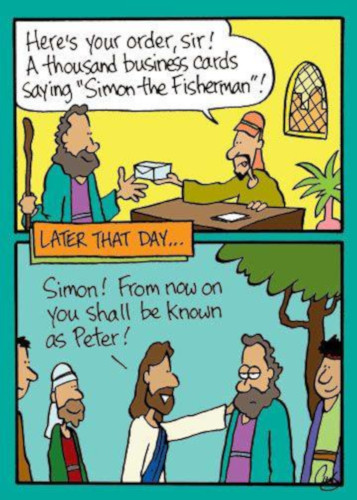
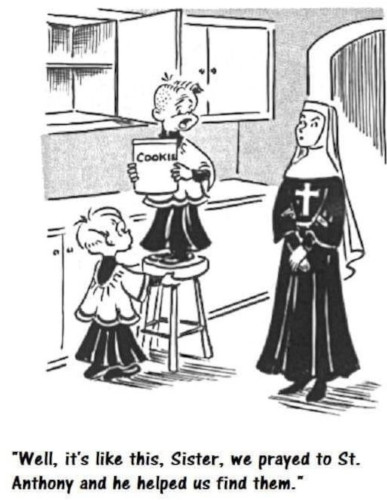
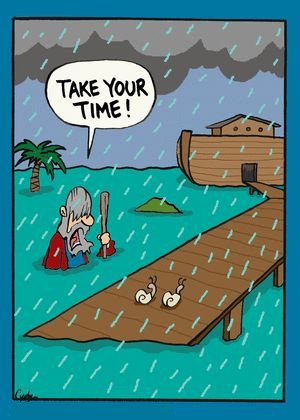


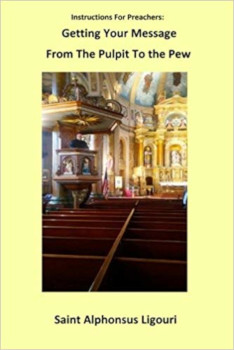
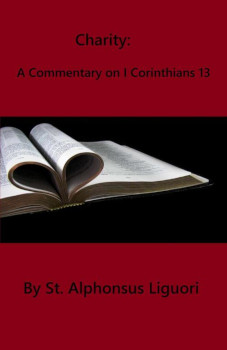









 Follow
Follow


